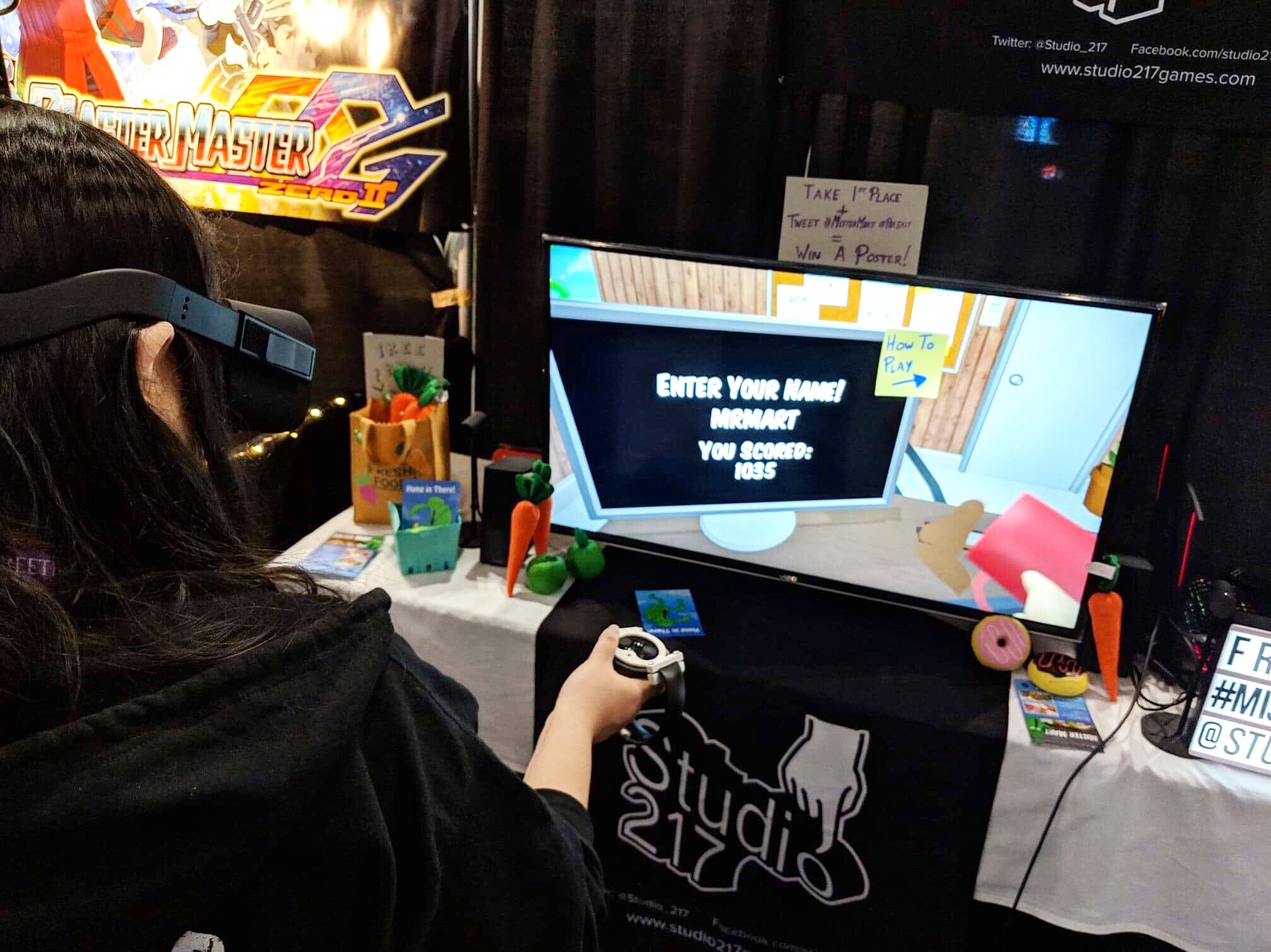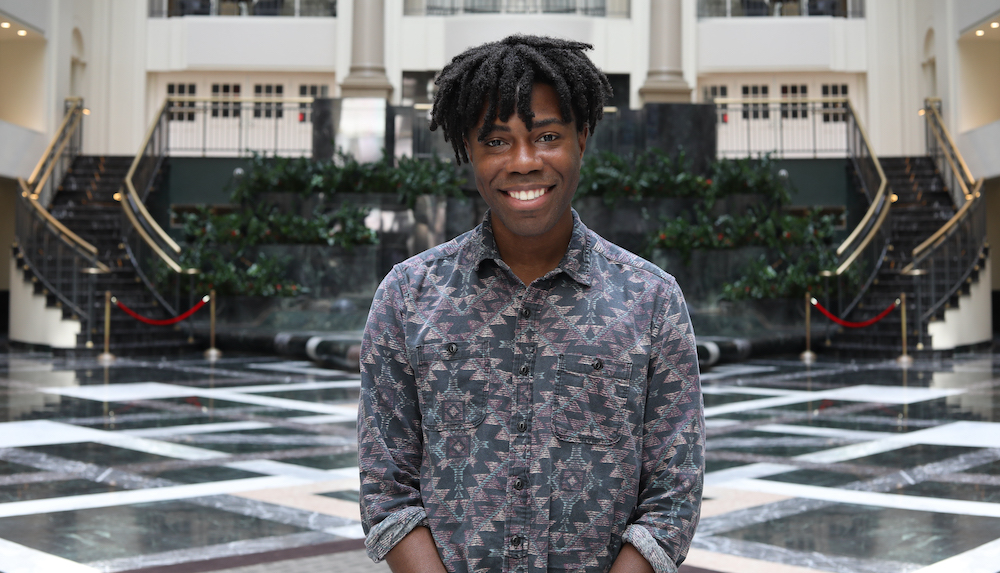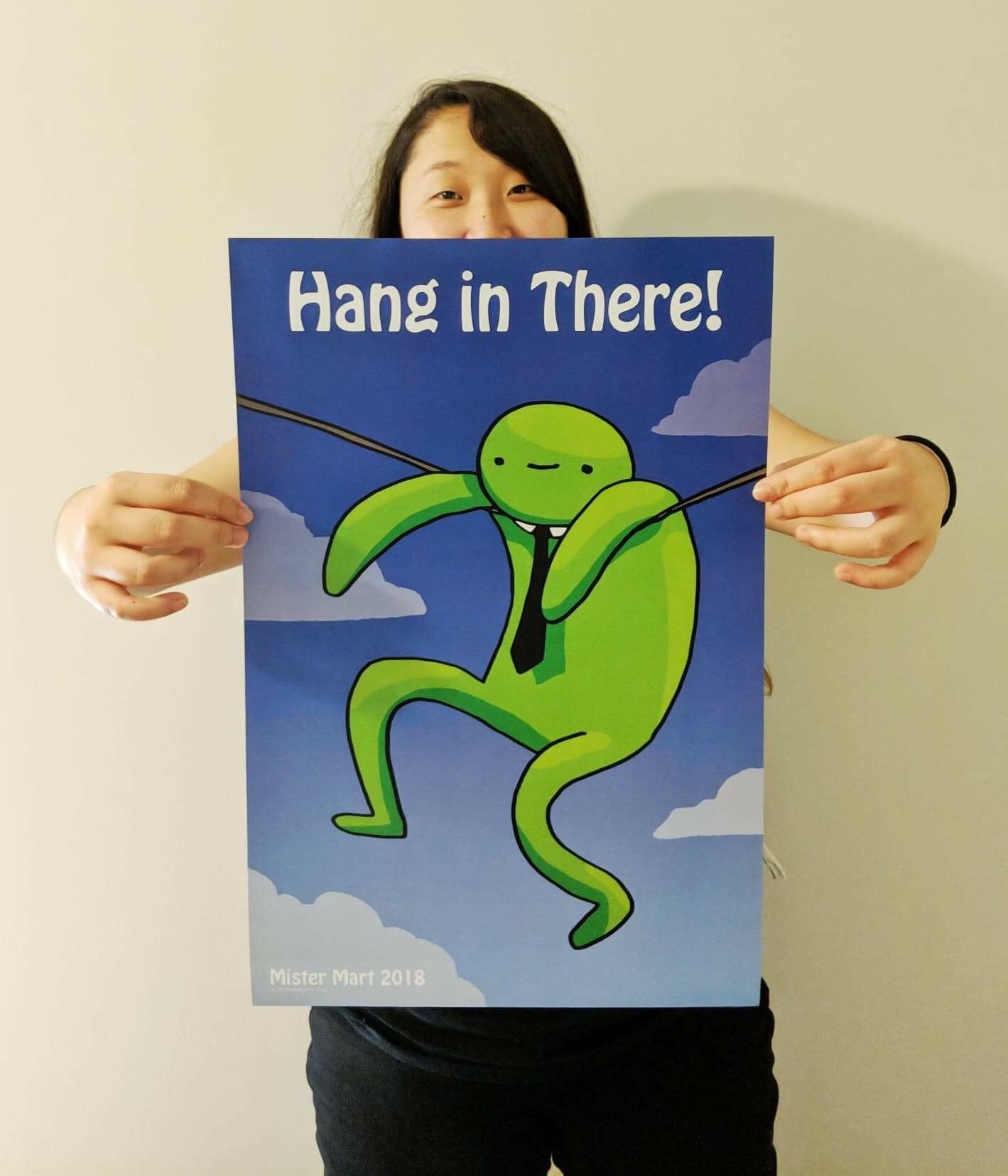
This is How I Got Here, a series where we chart the career journeys of technologists. Want to tell your story? Get in touch.
Karen Chang found game design at Maryland Institute College of Art (MICA). She started as a fine arts kid, making life drawings and still art. But her love for video games led her to change majors, switching into the interactive art department at the Baltimore arts college by her senior year.
“At that time, for my thesis, I partnered up with my classmate Cole Pritchard,” said Chang. Together they founded Studio217, an independent game studio.
“Our thesis was actually Mister Mart, our flagship game,” she said, referring to the virtual reality game that the studio demoed at events like GameScape and Baltimore Innovation Week. “We made a prototype for that game back in 2015 with the Oculus DK1, which is one of the first VR head sets.”
Getting in that Mister Mart groove!!#PAXEast pic.twitter.com/cTGoPOV8h0
— Studio217Games (@Studio_217) February 29, 2020
https://platform.twitter.com/widgets.js
By 2018, the game was released commercially on the Steam store. That’s the dream job – the entrepreneurial venture that fulfills Chang’s creative side. Chang also has a day job applying game design in the medical field, working as an XR Generalist with Medstar Health.
At MedStar, Chang creates VR training simulations of medical scenarios, which healthcare providers can learn from to reinforce their knowledge for recertification. At Studio 217, the goal is as simple as making people laugh.
Whether it’s designing games for education or purely for entertainment, discovering what is intuitive and enjoyable is always the name of the game.
“I’m like a jack of all trades but master of none, but I want to make sure the product gets finished,” said Chang about her work at MedStar.
For the MedStar projects, she writes game design documents, playtests, and creates the art. For her own studio, double all of those responsibilities, and decrease a five-person team to a two-person team. Then, add on the responsibilities of being a business owner.
“It’s just us two,” Chang said of herself and Pritchard at Studio 217. “We don’t even have a CPA, a lawyer or anything like that. It’s just been a really ground-up initiative on our part.”

Studio 2017’s Karen Chang and Cole Pritchard. (Courtesy photo)
That has meant more than three years of grinding it: Working on the game, demoing at trade shows like MAGFest and PAX East, and networking with local organizations like the Baltimore chapter of the International Game Developers Association.
She’s been working at MedStar for five years, and running her own indie studio for just as long.
Chang didn’t know game design could be applied in the medical field until her senior year at MICA, when she found a Facebook post in a game design group looking for an artist comfortable learning medical information. She got the position at MedStar Health by leveraging her artistic skills and passion for game design. Once she had the job, she learned from her peers and grew in her position, learning the ins and outs of designing games with an educational focus.
That meant designing for an audience that might not be as familiar with gaming and VR.
“When you give [medical professionals] a VR headset,” she said, the question is, “How do we make this the most intuitive, clear-cut, simple kind of controls that you can just get into?” she said.
For Chang, the lessons of game development are universal, whether it’s making games for educational purposes or entertainment.
“Game development is not easy,” said Chang. “It’s a lot of iteration, and it can be discouraging if you get negative feedback and it’s not what you had hoped. It’s determination there, where you’re like, ‘Let me make this product better, show it to these people again and see what they say.’”

Playing Mister Mart. (Photo courtesy of Studio 217)
For Mister Mart, Chang and Pritchard found that people like chaotic motion in VR, and they built off of that. Turns out, punching cartoonish characters is cathartic and enjoyable for players. From there, it was about the determination and sweat to move the game from ideas in her head to a controller in someone’s hand. For those that want to do the same, all it takes is the audacity to start.
“Just test out that interaction and the mechanics that you want,” said Chang, to new game designers, whether they are looking to create in board games, live action roleplaying or an app. “See if that’s fun and enjoyable, and work from there.”
Donte Kirby is a 2020-2022 corps member for Report for America, an initiative of The Groundtruth Project that pairs young journalists with local newsrooms. This position is supported by the Robert W. Deutsch Foundation.Join the conversation!
Find news, events, jobs and people who share your interests on Technical.ly's open community Slack

Baltimore daily roundup: The city's new esports lab; a conference in Wilmington; GBC reports $4B of economic activity

Baltimore daily roundup: Find your next coworking space; sea turtle legislation; Dali raided and sued

Baltimore daily roundup: Johns Hopkins dedicates The Pava Center; Q1's VC outlook; Cal Ripken inaugurates youth STEM center


